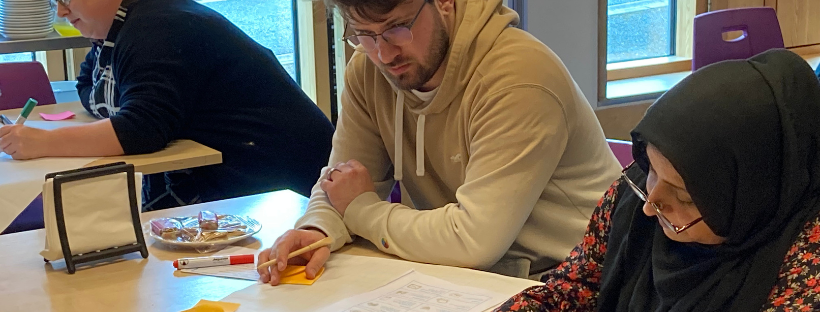PUTTING COMMUNITY VOICES AT THE HEART OF HEALTHCARE IN THE BLACK COUNTRY

Last summer, People’s Voice Media partnered with Black Country Integrated Care System (ICS), the VCSE network, and Wolverhampton Voluntary and Community Action (WCVA) to launch the REND Project. Over 18 months, we trained 51 Community Reporters and gathered 38 powerful stories exploring healthcare access across the Black Country.
The project aimed to:
- Build capacity within the VCSE sector to support research and engagement.
- Capture qualitative insights into people’s lived experiences of healthcare.
- Develop a community-led intelligence library to inform decision-making.
Through Community Reporting, we uncovered key challenges that needed addressing, including:
- Improving communication and training for healthcare staff, particularly around cultural competence and accessibility.
- Addressing digital inequities to ensure fairer access to online healthcare services.
- Embedding person-centred approaches that actively listen to and act on community feedback.
These findings were shared at a workshop, where local people and decision-makers came together to explore practical solutions. The stories will now inform ongoing improvements within Black Country ICS, ensuring that community voices remain central to service design.
This project is a step towards making healthcare more accessible, inclusive, and responsive to the people it serves. We were privileged to hear these stories—and even more excited to see how they drive real change.